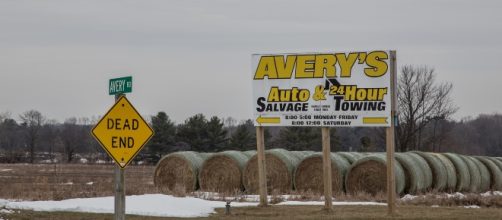Brendan Dassey, subject of the hit Netflix documentary series "Making a Murderer," has had his conviction overturned, 10 years after his sentencing. A United States Federal Appeals Court upheld the decision made by a lower court Thursday, stating that Dassey's confession was not legitimate.
Brendan Dassey confessed to detectives in 2007 that he aided his uncle, Steven Avery, in the rape and murder of photographer Teresa Halbach in Avery's salvage yard two years prior. Dassey was sentenced to life in prison.
The story of Steven Avery and Brendan Dassey's trials and convictions received worldwide attention with the release of the incredibly popular "Making a Murderer" documentary series in 2015.
Coerced confession
Brendan Dassey's 2007 conviction was based largely on his confession, but a federal court ruled in August 2016 that detectives coerced that confession from him. The federal magistrate ruled that detectives took advantage of Dassey's youth and mental health problems. Dassey was 16 at the time of the confession.
A coerced confession is not admissible in a criminal trial. A confession must be freely given for it to be used as evidence
The Wisconsin state justice department appealed the courts' decision, sending the matter to the Chicago-based 7th U.S. Circuit court of appeals. The move kept 27-year-old Dassey behind bars.
Upheld decision
The three-judge panel from the court of appeals ruled on Thursday that the lower court's decision was correct, nearly a year after the original decision.
The panel of judges was split in their decision. The majority opinion stated that, among many other things, "the leading, the fact-feeding, the false promises, the manipulation of Dassey's desire to please" were factors in their decision and that "no reasonable court" would have considered Dassey's confession legitimate.
The dissenting opinion, written by Judge David Hamilton, was equally strong: "The majority's decision breaks new ground and poses troubling questions for police and prosecutors. It calls into question standard interrogation techniques that courts have routinely found permissible, even in cases involving juveniles."
The state of Wisconsin can now ask for a review of the decision by the 7th Circuit Court or appeal to the U.S.
Supreme Court. The state can also choose to re-try Dassey within 90 days.
Not the final word
The state justice department had harsh words, stating "We continue to send our condolences to the Halbach family as they have to suffer through another attempt by Mr. Dassey to re-litigate his guilty verdict and sentence." Dassey's attorney, on the other hand, called it a "victory."
The Wisconsin Attorney General's office said that they expect to seek a review from the Federal court, and bring the case to the U.S. Supreme Court if necessary
Dassey's uncle, Steven Avery, is in the process of appealing his own conviction.
Unexpected celebrity
"Making a Murderer" has brought widespread attention to the case, with many viewers believing Avery and Dassey's contention that they were framed.
The pair state that they were framed by the police, who they say were angry at Avery for suing the county over his own wrongful conviction for sexual assault, for which he served 18 years before DNA evidence exonerated him.
The two have a large social media following, with many pushing for their release.
All the people that believe Steven Avery & Brendan dassey are guilty, obviously didn't read through the case files #MakingAMurderer #Noclue
— April (@aprilmelody86) June 21, 2017
Let's hope Brendan is out ASAP, those vile cops need locking up. #makingamurderer #BrendanDassey https://t.co/ifYap8Vdsy
— Tramadol (@Broffy) June 22, 2017
Wonderful news 1 step closer to Freedom for #BrendanDassey
— Holly Gordon (@rshadowwizard1) June 22, 2017


